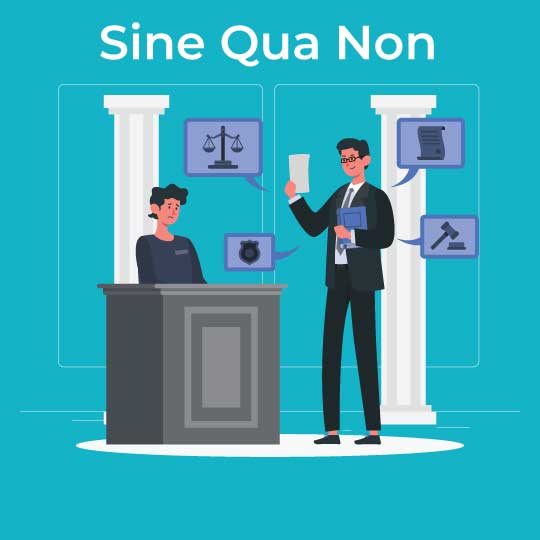
GRE Newsletter Subscribe
Enter your email address below and subscribe to our newsletter

Enter your email address below and subscribe to our newsletter

This series of blogs is a weekly GRE Words List that helps GRE aspirants get a leg up on their GRE Verbal Preparation, and ace the GRE Verbal section.
If you haven’t already, check out our other blogs here.
Taking a brief departure from themed lists, this GRE Blog is all about foreign phrases that you can use in your, application essays (for business schools) and SOPs that’ll make you sound smart and distinguished.
This week’s words/phrases are ‘raison d’être’, ‘joie de vivre’, ‘quod erat demonstrandum’, ‘inter alia’, and ‘sine qua non’.
Part of Speech – noun
Definition – ‘purpose or reason for living or being,’ or ‘most important thing’.
Origin – from French for ‘reason for existence.’
Usage – Michael Jordan’s raison d’etre was basketball.
Ikigai. Yes, sorry for the terrible pun.
Ikigai is a Japanese concept that means ‘one’s purpose in life.’ It’s a compound word that joins ‘iki’ meaning life, and ‘kai’ meaning worth, or purpose. Some have described ‘ikigai’ as the ‘reason to get up in the morning.’ People who ‘feel ikigai’ describe it as feeling fulfilled, and content with one’s life. A person achieves ikigai when they voluntarily set goals / perform activities. This is as opposed to when someone else forces them to partake in some activity.
Reports from Japan claimed that feeling ‘ikigai’ is the primary reason why Okinawans have longer expected lifespans.
Studies are inconclusive, but ‘healthy mind, healthy body?’
Part of Speech – noun
Definition – exuberant enjoyment of life.
Origin – from French for ‘joy of living.’
Synonyms – gaiety, merriment.
Usage – Her joie de vivre made everyone admire her, and look up to her.
Abraham Maslow was an American psychologist who is best known for his Need Hierarchy Theory. As per his theory, human needs can be represented on a pyramid.
At the base, are the most important needs of them all – the physiological needs – food, clothing, shelter, etc.
Then come ‘safety’, ‘a sense of belonging/community’ and ‘esteem’.
In the final layer, at the peak of the pyramid, lies self-actualization.
Maslow states that one experiences or embodies joie de vivre in the pursuit and achievement of self-actualization.

Maslow also came up with the ‘Hammer’ theory. It goes, “If all one has is a hammer, everything starts to seem like a nail.’
Oh, to be a fly on that wall…
Part of Speech – noun
Definition – used to convey that a fact or situation demonstrates the truth of one’s theory or claim, especially to mark the conclusion of a formal proof.
Origin – from Latin, literally ‘which was to be demonstrated.’
Synonyms – ergo, hence proved.
Usage – That little speech was his QED to the whole thing.
No, that’s not a typo. Nor did my keyboard get jammed.
Q.E.D. is a Latin phrase that was/is used by physicists and mathematicians to say ‘I’ve shown what was to be shown.’
A more tongue-in-cheek version is WWWWW or W5 which stands for ‘Which Was What Was Wanted.’
In math, QED is represented by ∎, called a tombstone. It marks the end of the proof. Fitting, wouldn’t you say?
Another name for the symbol is a ‘halmos’, named after Paul Halmos, widely credited for having used the symbol in a mathematical context. Halmos himself denies that claim, saying he’d seen it used somewhere else, but gracefully accepts credit for popularizing it.
Although Q.E.D. is a phrase that is a good conclusion when you intend to prove/substantiate your argument, using it out of context can be very embarrassing and can come across as pretentious.
Q.E.D.
Part of Speech – noun
Definition – among other things.
Origin – from Latin, for ‘not limited to’ or ‘among other things.’
Usage – Wizako’s GRE course covers, inter alia, arithmetic, algebra, and geometry.
Part of Speech – noun
Definition – an essential condition; a thing that is absolutely necessary.
Origin – from Latin, literally ‘(cause) without which not.’
Synonyms – requirement, necessity.
Usage – A GRE score of 320+ is a sine qua non for getting admission to a top US university.

Sine qua non was originally a Latin legal term, which was used either as a lance or a shield, and represented the ‘but for…’ argument.
E.g. But for the drunk driver, the accidents would not have happened.
However, this kind of cause isn’t substantial enough to be the cause of the accident. So, the law considers something called Proximate Cause – what is the closest action because of which the accident occurred?
Say a drunk driver hits a pedestrian, the proximate cause here is the drunk driver.
But, if the same driver crashes into a warehouse, and the warehouse explodes, which then distracts a few truck drivers, and causes them to hit other pedestrians, the drunk driver is no longer the proximate cause.
Complicated, I know. 🙂
In the medical field, a sine qua non is used to rule out diseases, based on lack of symptoms.
e.g. It’d have been cancer, but for the absence of relevant protein markers.
That’s all for this blog, folks!
Thanks for reading.
Please consider following us on our socials listed below, for more, regular, GRE content.
Stay tuned for next week’s blog!
Looking for more ‘GRE Words List’ Blogs? Click here.
Want to kickstart your GRE Prep? Sign up for our beta Quant course here!